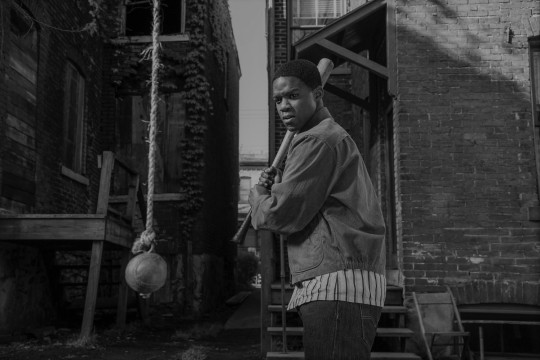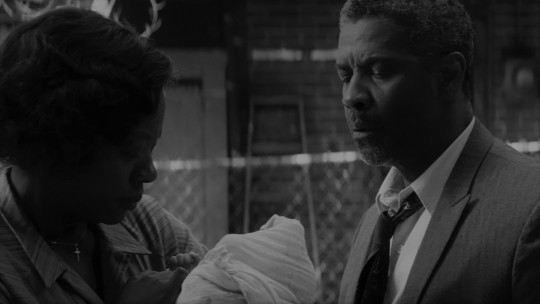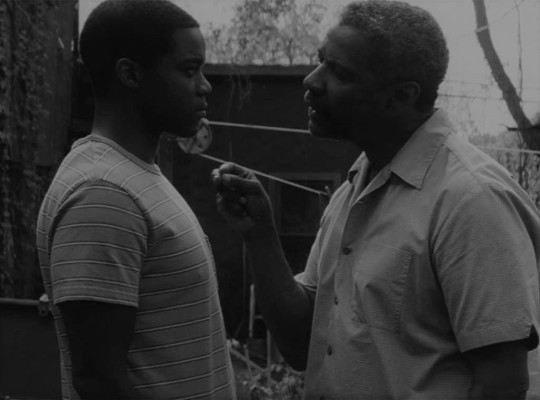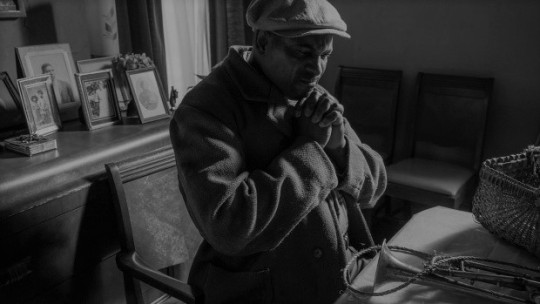#she was ultimately the biggest metaphor for my mental illness struggles
Explore tagged Tumblr posts
Text
Spent a few hours drawing the old gods from the old tumblr blog (if you know who I'm referring to you have way too much knowledge) and realizing there was a lot of narrative foil gold in there that I was NOT equipped to realize and act on at that period of my writing.
In other news, might honestly revive the old persona-turned-oc with a new name as a short story because the narrative symbolism of its lore is actually kind of heartbreaking in line with my particular Brand of struggle I was experiencing when I made it. Lonely author kid creates entity born in complete nothingness, abandoned by its creators, reaching out through spans of oppressive nothingness to try its best to make contact with people even though it struggles to connect and understand their ways. Entity that's been created outside of all pre-established worlds that can't possibly find a world where it belongs but it finds the misfits from them and befriends THOSE. entity whose entire struggle is isolation, even when it finds company, because it fears that these new companions will someday leave.
Like. Can you TELL I was a lonely autistic kid with parental issues
#idk man something about the god of nothing meeting the god of everything was sort of gold#essentially somebody dealing with constant overstimulation meeting somebody with constant understimulation#both with immense but opposite struggles#both not fitting in very well to any possible world because they are outside of those places by nature of their creation#and with bfly embracing her role to constantly seek out companions and help mortals#even though she knew they would die someday#even though she understood the temporary nature of all relationships#she overcame that fear of loss every day because she felt that it was worth it to meet and help everyone she could#and she had to face that every. single. time. she chose not to isolate herself! she fought that again and again!#she was ultimately the biggest metaphor for my mental illness struggles#and i never even gave it a sprinkling of a thought#i created the most poignant metaphors for what i was going for and i was like heehee hoohoo sillay void warlock#that shit blows my fucking mind
0 notes
Text
Ok so this is really interesting to me. She makes some good points, and I think the "rock in your shoe" metaphor is really clever and resonated with me a lot. And it sounds like the "rock in her shoe" was in fact gender dysphoria, I mean I don't know her so I have no reason to question that. "You just kinda assume that everyone is a little uncomfortable all the time" until you realize that they are, in fact, NOT, that is so deeply relatable to me. But here's the thing that I and I would bet other detransitioners/desisters want people to understand. The feeling that there is something very very wrong but you can't quite put your finger on it, and you can't remember not feeling that way, and you assume everyone feels that way, is NOT AT ALL EXLUSIVE TO GENDER DYSPHORIA. Now, for the record, I'm not saying that this comedian is saying that it IS exclusive to gender dysphoria, she didn't say that and I genuinely think that she's just relating her experiences. But there are people who are watching the videos she references, seeing people say "I got the rock out of my shoe by transitioning! I feel so much better now!" And there is a profound relief that they have a solution in sight, and that they no longer have to pretend they're not constantly uncomfortable. One thing that I think was actually GOOD about my former trans identity is that I finally had a way to say "something is seriously not right with me and I don't have to pretend that it's not!" and while it was damaging in other ways, I think if the options were "being trans" or suppressing and shaming that discomfort in myself, being trans was better, at least at the time. Just to be clear, ultimately I think identifying as trans was bad for me in the long run, and I didn't transition medically and I am very lucky for that and I'm not here to talk over other detransitioners who have, I'm just sharing an experience and it's a nuanced thing. There was a combination of things that caused the "rock in my shoe", like a history of bullying, being fat my whole life and feeling uncomfortable in my body because of it, some autistic traits most likely, but the biggest one was the trauma I experienced from living with emotionally manipulative and abusive parents and a severely mentally ill brother that made my childhood full of constant chaos and fear. (I also suspect there was some sexual abuse involved but that's not something I feel comfortable digging too deeply into right now in the interest of maintaining my mental stability, but I do think it's worth noting but I'm not going to elaborate any further at this time because I think the things I'm saying are enough to make the point on its own.) It gets so complicated because I truly am not saying that it's "easy" to be trans, but there are some things that are harder to face than joining the loving and supportive and validating trans community (obviously it's not always that way but you know what I mean). When I got away from abuse for the first time in my life (at age 23) I also lost my entire family and financial support and I had to start my whole life over and even now I'm still really struggling and it was almost 4 years ago. It was genuinely easier to think that what was wrong with me was gender related and that it was something to be proud of, that it was something authentic and wonderful despite the hardship, instead of what it really was, which was just awful and painful and unfair. I was in therapy but I spent 90% of it talking about my gender identity to avoid talking about anything else that was too difficult to deal with, and while my therapist was a nice person, she didn't challenge me on any of it. I don't know how receptive I would have been at the time, but I needed help I wasn't getting. I understand why people say "nobody would choose to be trans" but there ARE reasons why someone would choose that (even unconsciously) because we thought it was better than the alternative. Detransitioners and desisted people are proof of this.
#gender critical#detransition#radical feminist#radical feminists do interact#desisted#gender ideology#radfem
10 notes
·
View notes
Text
Fences
“Cory: Hey Pa!
Troy: Hmm?
Cory: Can I ask you a question?
[pause]
Cory: How come you ain't never liked me?
Troy: Like you? What law is there sayin' I got to like you?
Cory: None.
Troy: All right then. Don't you eat every day? Answer me when I talk to you! Don't you eat every day?
Cory: Yeah...
Troy: As long as you're in my house you put a "Sir" on the end of it when you talk to me.
Cory: Yes, Sir.
Troy: You eat every day?
Cory: Yes, Sir.
Troy: You got a roof over you head?
Cory: Yes, Sir.
Troy: Got clothes on your back?
Cory: Yes, Sir.
Troy: Why you think that is?
Cory: 'Cause of you?
Troy: [chuckles] Hell, I know it's 'cause of me. But why do you think that is?
Cory: 'Cause you like me?
Troy: Like you? I go outta here every morning, I bust my butt 'cause I like you? You're about the biggest fool I ever saw. A man is supposed to take care of his family. You live in my house, feed your belly with my food, put your behind on my bed because you're my son. It's my duty to take care of you, I owe a responsibility to you, I ain't got to like you! Now, I gave everything I got to give you! I gave you your life! Me and your Mama worked out between us and liking your black ass wasn't part of the bargain! Now don't you go through life worrying about whether somebody like you or not! You best be makin' sure that they're doin' right by you! You understand what I'm sayin'?”

In Fences, an award-winning film about life for a struggling African-American family in 1950s Pittsburgh, Denzel Washington plays a man (Troy), who is consumed with resentments about the life he never got to have, due to the prejudice he has experienced for the colour of his skin, complex family history, and economic depression. Gabriel, his brother, has sustained a head injury during serving in World War II, which has left him mentally ill, and receives a $3000 government settlement that Troy uses to purchase a family home, to shelter his wife and children, as well as Gabriel. Gabriel subsequently moves out with time, but continues to experience episodes of psychosis that estrange him from the local community and bring a sense of embarrassment to the family, despite Troy’s obvious love and devotion to him.
Troy escaped an abusive father by committing acts of robbery in his youth, and ended up in prison for his crimes, where he discovered his talent for baseball. On leaving prison, he joins the Negro Leagues, but never makes it into the Major League, as this door is shut to African-Americans. Troy narrowly avoids death as a young man when suffering near-fatal pneumonia, and claims this is due to defeating the Grim Reaper in a fistfight, who told him he would return for a rematch. Troy spends his life watching over his shoulder, waiting for the Reaper at any junction.
Troy has 2 sons – Lyons, his estranged son from a previous marriage who dreams of becoming a musician, but who always comes cap in hand to borrow money from his father each pay day. Troy resents Lyons’ aversion to finding a steady job and financial independence. Troy is indignant in not visiting Lyons’ club to watch him play.
Troy’s other son Cory, a talented baseball player like his father, has been scouted for a college baseball team, having been destined for the NFL Major League, and his mother Rose pleads with Troy to sign the permission documents to allow him to play. Troy refuses, believing that widespread prejudice still exists within the league, and that his son had better find a steady job now, to avoid inevitable disappointment and failure. The undertone of these scenes is that Troy feels bubbling jealousy at his son’s talents, and the opportunities that eluded himself.

The story continues along this path for some while – drunken conversations and outbursts of grief about a life wasted, interspersed with jubilant optimism and hope when Troy believes he may stand a chance at being promoted to driver of the garbage trucks he has been working on for years. A dream of a better life for his family is always within tantalising reach, but evaporates like vapour whenever he gets close enough to taste it. Eventually, Troy makes promotion (the first African-American in Pittsburgh to drive a truck, even though he is unable to read and doesn’t hold a driver’s licence) and his life shifts unalterably.
It is revealed that for some time, Troy has been involved in an affair with a woman he met in a local bar, and his friend Bono warns him that repercussions will be knocking before too long. Troy is outwardly dismissive of this, but the film’s pace shows us a growing sense of anxiety and dread. Within this state of tension, Troy discovers Cory has quit his steady job to focus on his baseball, and in a fit of rage, Troy forces Cory’s coach to quit the team. Troy and Cory lash out at each other in a physical altercation, ruining their relationship forever. Further tragedies ensue when Troy unknowingly signs committal papers for Gabriel to be admitted to a psychiatric hospital, because he can’t read. This leads to Gabriel living a sedated life in squalid conditions at a local asylum, an irreversible decision now his care is in the hands of the state.
The finale comes when Troy discovers that his mistress is pregnant and is forced to reveal his affair to his wife, who has supported him their entire adult life, and taken in his boy Lyons as her own. Rose is devastated, cheated by the one man she’d shown love and devotion despite his many flaws. Troy and Rose try for a while to sustain an estranged relationship with Troy visiting his mistress during the week, and returning to the family home at the weekends. We see Rose’s previous love for Troy die out, a faded, glazed look in her eyes. Finally, when Raynell, his illegitimate daughter is born, his mistress dies in childbirth. The epitome of female sacrifice, Rose eventually concedes to helping Troy look after the baby, and raises her as her own, just as with Lyons. Six years later, the Reaper returns for his rematch with Troy. Troy loses, and dies when he suffers a heart attack in his front yard, surrounded by the picket fences that Rose asked him to build around their home.
Earlier in the film, Bono, Troy’s lifelong friend had remarked, "Some people build fences to keep people out and other people build fences to keep people in. Rose wants to hold on to you all. She loves you." For Rose, their picket fence represented holding her family together – protecting them from the cruel bite from outside. For Troy, the fence comes to represent his resentment at a life contained to his front yard, wasted dreams, and having felt caged and overlooked for greatness in favour of mundanity and disadvantage his whole life.

I don’t think a film has resonated with me so much for a very, very long time. There were so many parallels and metaphors to draw from. It reminded me of all the petty resentments that snowball during our lives. The little things we think we can bear, until one day, we just can’t. What made Troy’s world fall apart? Why did he make choices that were his undoing? Why couldn’t he be satisfied with a life others would feel blessed with? I think we can analyse the dynamics a little closer…
One of the first emotional intensities referenced in the film is Troy’s guilt over spending his brother’s money for a sacrifice he himself did not make (serving in the war), when he himself has lived a life of crime, and his brother has remained handicapped by. Friends and family tell him he did the best he could to give Gabriel a secure life and keep him away from the asylums. As we see, Troy cannot reconcile this in his mind, and ultimately, in time, Gabriel becomes consigned to the unit through Troy’s impulsive actions and lack of humility in asking for help.
Troy not just perceives, but knows, his colour to be a barrier to his prospects. No African-American man would be considered for the Major Leagues. No African-American man at the time would have been offered a driving position on the trucks. Troy is an intelligent man who is capable of greatness, but monumental barriers of prejudice, shame and social status stand in his way.
Troy’s ego is his undoing. This is threatened by the sense his two sons, one a creative, one a sportsman, are about to be recognised for their achievements in a way that was never going to happen for him within his generation. He allows his ego to scupper his son’s chances for success, his past experiences to convince him that their hopes should be dashed now lest they have a greater fall in the future, and his insecurities lead to an ego war in his home for head of the household, where his authority is being incrementally overshadowed by his sons’ greater moral compass in supporting his wife, their mother, in a way he cannot, given his emotional shortcomings.
There is a sense of inevitability in Troy’s fight against his demons not to become his own father. We see him battle and sway between loyalty and tough love to his family, and bursts of rage and cruelty that alienate him from those who have loved him best.
Troy is constantly watching over his shoulder for the Reaper. Convinced at any turn, the Reaper will catch up with him, he lives a life defined by the need to prove to himself his existence has been worthwhile. His affair encapsulates his insecurity about his masculinity as provider to his family, his morbid fear of death, and his need for escapism from the “fences” that “keep people in”. In smashing down those fences metaphorically, Troy destroys the protective fences Rose has known to keep her family safe and close.
There is an unspoken sense that Troy and Rose “settled” for each other. They have come to have a strong love and bond given their time together, and there is evidence of genuine, deep affection. But we are led to believe Rose had her choices of better suitors, and could have been looked after by a more loyal man, but that she made a choice in youth to stand by Troy, and take her chances. Rose has to a degree “made her bed”, and it breaks the viewers heart to have to watch her “lie in it” when so wronged by Troy, because of her financial dependence on him, and unbreakable loyalty, despite her all-consuming grief at his betrayal.
There are smaller resentments. Troy’s son Lyons continues to be financially dependent on him, despite being a man of his 30s. Troy is forced to begrudgingly subsidise 2 adults (Lyons and Gabriel) – Gabriel is forgiven because of his circumstances and Troy’s loyalty and love waver for him far less than for Lyons, perhaps given the guilt he is wracked with. We sense a coldness between Lyons and Troy – an atmosphere of no real love lost, but without the fury and vitriol that characterises his relationship with Cory.

And how about Rose? Rose’s life is characterised by female sacrifice and emotional labour. Rose is not naive in her loyalty; the viewer knows that she knows that Troy is flawed, and will disappoint her over and over again. At times, Rose has a silent complicity in Troy’s behaviour. We see her walk on eggshells around Troy by subduing Cory’s conversations about baseball. We see her turn the other way in bed, her tear stained face swollen in indignity at Troy returning to the marital bed after being with his mistress. Rose is the real head of the household and we learn that she has a better grip on the finances than Troy, who is always drunk, and spending money on beer. When Troy comes home with Raynell in his arms, he doesn’t know what to do. He has no idea how to physically look after a child, having never taken the time to learn, and he begs Rose to help him. Rose takes only a matter of hours to concede.
The aftertaste of the film is bitter. We would like to believe that Troy’s return home was about missing Rose, about repenting for his mistakes, and wanting to start all over again. Instead, the reality is that he loved his mistress equally, if not perhaps more so than Rose, and would have chosen to build a life with her if she had not died in childbirth. Rose is his second best, and she knows it. And somehow, she has the strength to carry on in her marriage to a man who doesn’t deserve her.

I don’t need to dot the dots for you here. My life at times, as I’m sure is yours, is characterised by a complexity of resentments that I find hard to admit. I can feel left behind, taken for granted, world-weary at times. I question my choices, and examine my part in the twists and turns I’ve experienced so far. I hold many regrets, and anger at my disappointments.
Of one thing I am determined; to build a life, not a fence, that keeps people close to me, without duress, or duty, but out of love, respect, and deserving.

0 notes